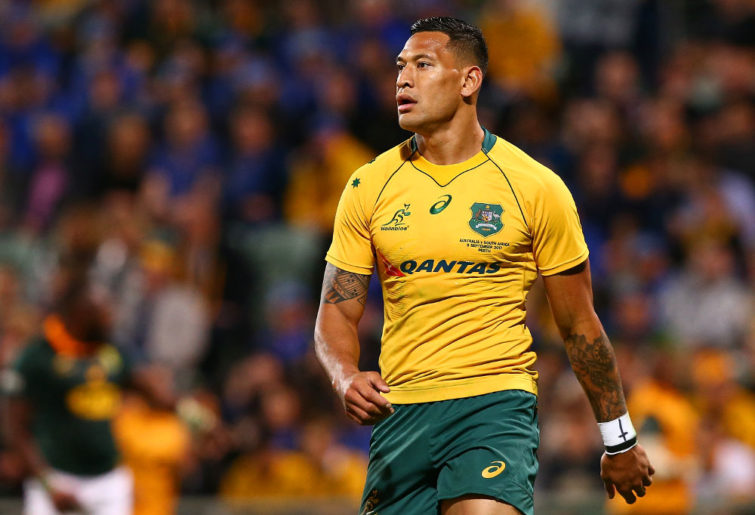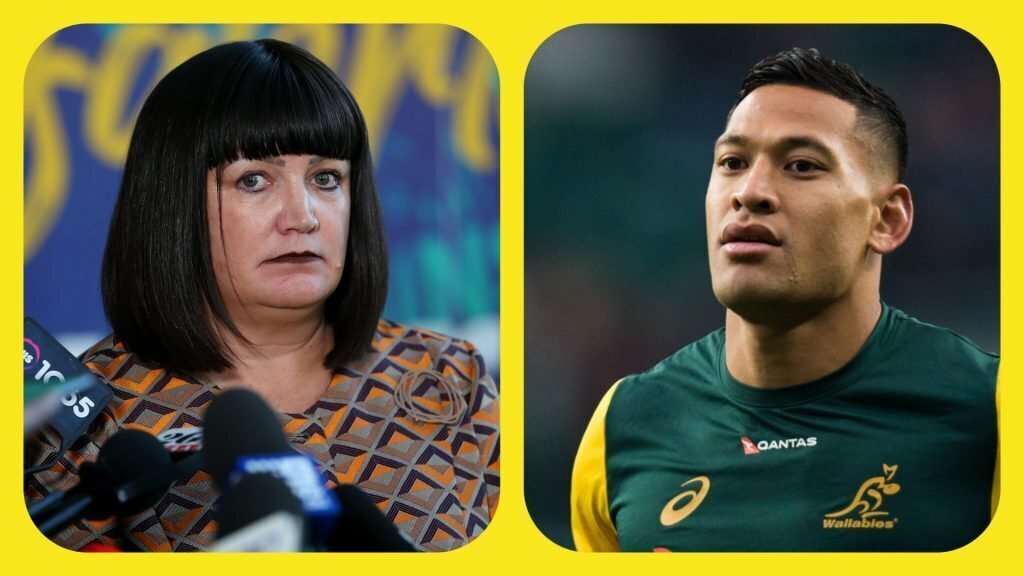Israel Folau case has been mishandled from the start; is it too late to make things right?

Israel Folau and I don’t have much in common, but two things we share. The first is that we are both committed Christians within the evangelical tradition of faith. We take the Bible seriously as a book inspired by God. That helps me to understand Folau’s desire to share his beliefs ― his heart, his motivation, his passion.
The second thing we have in common is that neither of us is theologians. Nevertheless, I do have to agree with Folau’s apparent view that any particular category of a sinner is going to hell because their identified sins are egregious. To be sure, in 1 Corinthians 6:9-10 Paul does give a list of wrongdoers who will not inherit the kingdom of God, and Folau was paraphrasing this passage.
However, passages of this kind are only open to one interpretation. It is in the first eight chapters of his letter to the Romans that Paul sets out in a systematic way the Christian gospel. In Romans 3:23 he wrote that “all have sinned and fall short of the glory of God.” That’s me and Izzy Folau, the Pope and everyone else living today. Jesus was the only one to live a perfect life. It was his death on the cross that paid the price for our sins and which allows each of us to come into a relationship with God.
The Bible does not paint a clear picture about hell ― but whatever it may be, God’s judgment is entirely non-discriminatory. It calls every one of us to account, irrespective of our race, gender, sexual orientation, gender identity, or how good a life we may think we have led.
It is the rejection of Christ that sends you to hell and not your sin.
Each of us must fall on the mercy of God and humbly accept the saving grace of God in Christ. If we do, we experience God at work in our lives in this life and are assured of eternity with God in the next. That is the traditional Christian message.

How Rugby Australia should have responded
That said, the saga that has enveloped Folau raises a number of profound social and legal issues that should concern us all. The entire débâcle, I believe, could have been avoided with a little more wisdom from Rugby Australia. To describe Folau’s views ― which addressed a range of forms of conduct he regards as sinful ― as “homophobic” was a massive distortion of the whole thrust of his Instagram post. It ignored the fact that he listed a range of categories of sinners or unbelievers.
Asking Folau to choose between his career and his faith was also utterly unreasonable ― and may yet prove to have been unlawful under s.772 of the Fair Work Act 2009 as discrimination on the basis of his religious beliefs. His faith includes a desire to help others to experience a relationship with God, in this life and the next.

All that Rugby Australia needed to do in response to Folau’s Instagram posts was to reaffirm its strong commitment to diversity, which includes acceptance of the range of religious and non-religious beliefs in a multicultural society. Rugby Australia could also have explained that it does not endorse Folau’s religious views and that rugby is a sport open to all. It could have pointed out that these were Folau’s own views expressed on a personal Instagram account which had no connection to Rugby Australia or his teams. It could have emphasized its commitment not only to diversity but to freedom of religion and freedom of speech.
It could have stressed that it has no right, as an employer, to control what its players say when they are not representing Rugby Australia. While Folau could not be allowed to express religious views while giving a television interview after a rugby match, he is not employed 24/7 by Rugby Australia. He is entitled to a sphere of life that is not under the control of his secular employer. If he chooses to preach on a Sunday morning, for example, Rugby Australia has no right to censor the content of his sermons.
By affirming its commitment to diversity, and its acceptance of the fundamental rights and freedoms of all Australians to hold and express their own religious, political or other views, Rugby Australia could have signaled its virtue and its principles.

What role did Qantas play?
It is widely believed that Rugby Australia was acting on, or anticipating, the perceived wishes of its major sponsor, Qantas. It communicated its intentions to Qantas long before it formally laid disciplinary charges. The Qantas CEO, Alan Joyce, has argued that sponsors do not want to be embroiled in controversy.
Fair enough; but Rugby Australia’s decision and the perception that Folau’s sacking was, to some extent, at the behest of Qantas, has embroiled that airline in huge controversy. People are now asking when the Australian people handed over control over the selection of the Wallabies to a private company?
If Qantas wanted Israel Folau to be dismissed, which other players might it in the future want to be removed from the team on the basis of their religious or political views or other attributes?


